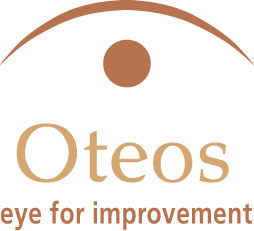After a brief hiatus from writing – I am back! While I planned a short time away for personal reasons, my extended leave was not expected. This novel Covid-19 virus decided to attack the world and, unfortunately, made it into our home. I must clarify that I am only a presumptive case of Covid-19. I’m a nurse practitioner with the knowledge and resources to manage my symptoms safely at home, and I’m a bit stubborn and didn’t want to leave the comfort of my house to get tested. That being said, I had all the classic symptoms: sore throat, shortness of breath, fatigue, muscle pain, dry/hacking cough, and a SEVERE headache. I am a migraine sufferer and have never endured anything close to the severity of this headache. Worse yet, no medication could take the pain away. It’s been just over twelve weeks since I became ill. Fortunately, I’ve recovered from most of the symptoms but I still suffer from intermittent headaches, easily fatigued, and a heightened sense of anxiety/agitation. All of these symptoms are consistent with brain trauma, referred to as Traumatic Brain Injury (TBI).
So I’m In the 30%
As we all know, Covid-19 is a new virus that is sending the research world into a high-pressure, time-sensitive environment. Governments are demanding data, new treatment modalities, and a vaccine for the deadly virus. As brains of the deceased are studied, and data is compiled, researchers can give us more information about the virus. An estimated 30% of Covid-19 patients develop neurological symptoms. Initially, it was thought that the virus could not cross the blood-brain barrier meaning that it didn’t directly affect the brain. As more data is received, however, it was discovered that it can and does cross into the brain. This shouldn’t be a surprise as many other respiratory viruses (influenza, measles, RSV) create havoc in the brain.
As research continues and more answers are found, there are many questions that still need to be answered. Of special interest to me is how long will this “Covid Brain” last? I’m talking about more than the headache and fatigue here. I’m talking about the loss of short-term memory, inability to focus, intermittent confusion, and days like yesterday that I just can’t focus on anything. My husband asked me what I was thinking, and my reply was “nothing”. And I meant it. There was absolutely nothing going on upstairs. That’s frightening for an educated, intelligent person to experience.
So Why Does This Matter?
As the world begins to re-open businesses after this virus has devastated lives and the economy, they will struggle with getting the business back on its feet. This may mean downsizing (even if temporarily), restructuring, and for some, closing their doors forever. But what about those staff that were infected with Covid-19? Many of them will suffer residual effects from the brain trauma.
A healing brain is a delicate organ. In most traumatic brain injury cases, the healing is slow, and the person may not get back to the full function they had before the injury. Unfortunately, there isn’t enough evidence with Covid-19 yet to fully understand the residual effects on the infected brain. Fortunately, there are ways to promote healing and support your staff as they recover. Always keep in mind how frustrating this is for the person struggling to get their brain back.
Brainline.org provides some excellent tips to help your staff transition back into their position while still encouraging a healing environment.
Visie – Lighting is important – change the fluorescent lights to high intensity, white lights, and increase natural lighting. Provide an anti-glare computer screen and large print on reading materials.
Focus– Concentration is going to be a constant struggle. To help with this, provide a quiet work area with little distraction (a private office or work enclosure if possible). Allow for white noise. Break down large jobs into smaller, manageable tasks. If necessary, restructure their role to include only the essential functions.
Fatigue – Maintaining stamina throughout the day is a challenge. Offering flexible schedules, longer or more frequent breaks, and part-time work schedules are all viable options. Schedule more challenging tasks at the beginning of the day, leaving more mundane tasks for the end of the day when fatigue is more likely. Most importantly, encourage your employee to acknowledge their fatigue and rest when they are to that point, even if it means going home.
Stress– Handling stressful situations and managing emotions is more difficult while the brain is recovering. Acknowledging this includes sensitivity training for other staff and providing a positive work environment. Encourage the employee to access any available Employee Assistance Programs and coaching services.
Awareness & Acknowledgement
As a leader, it is important that you are aware of these symptoms and remember that not everyone that had Covid-19 was tested and confirmed. You may have staff that had/have the symptoms that aren’t confirmed with testing but may still suffer the long-term complications of the disease. Acknowledging their struggles will go a long way to support them during their recovery. Hopefully, the recovery time will be a matter of weeks, but for some, it is turning into months. This can be frustrating to management and the staff member. Patience and understanding will be key.

Add a Comment